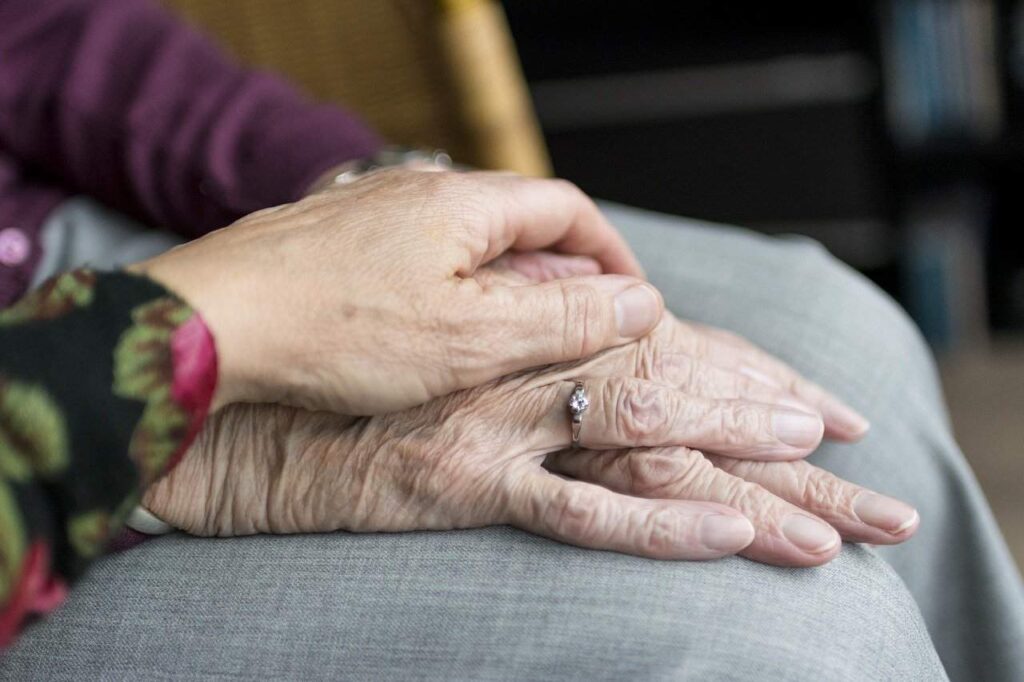Table of Contents
When any of your family members are recovering from any trauma, chronic illness, severe injury, good personal care becomes mandatory.
Most of the time these conditions affect the mobility of the patient and they are unable to complete the daily tasks without assistance. The routine tasks such as eating, bathing, and moving become challenging.
Similarly, our loved ones need help with daily routines with the growing age. Nearly half of people age 65 and older need help with routine daily activities.
In the United States, more than 18 million people require some kind of help. This number is only expected to increase in the coming years as the population ages.
Some families chose to take care of the patient on their own while others hire personal care professionals.
Any person in charge of personal care works against the odds and help the patients lead an almost normal life.
Either you are dealing with the senior citizens or an injured person, you should learn home care tips to provide a healthy environment. It also includes taking care of your health as their comfort depends on it.

Basic Tasks Included in Personal Care
1. Nutrition
Everyone needs proper nutrition to lead a healthy life. More than anyone else, the patients or senior citizens require carefully planned diets and healthy meals.
A caregiver is responsible to plan and prepare the diet. They also help is feeding the patients. If the caregiver is not a nutritionist, consult a professional to know what works best for them.
2. Personal Hygiene
The second most important aspect of personal care is personal hygiene. Caregivers assist with daily tasks such as bathing, dressing, grooming. It also includes tasks such as haircuts, nail clipping, and shaving.
3. Mobility
Assistance in mobility is very important for patients, even if they have to do it within their surroundings.
Make sure the wheelchair is in its best shape and it properly fits. Install wide door wells, handrails, and wheelchair ramp to make the mobility easy and hassle-free.
You can always hire a reliable Personal Care Agency to seek help from professionals. Make sure your family member is ready to accept help from the professionals.
Give them adequate time to get used to the new course of life before handing over all the duties to the care professional.
4. Medication
The patients need adequate medication to recover or lead a normal life with the illness. This generally includes doctor’s visits, dental care, eye care, foot care, physical therapy, and psychiatric therapy. If they need help in taking pills or remembering the schedules you have to add this to a daily plan of care.
5. Transportation
If the person can no longer drive, you need to set up transportation so they can reach the medical appointments on time.
Home Care Tips
1. Create To-Do Lists
If you are the personal caregiver, there is a lot on your plate. You can’t afford to miss any of the important tasks as a whole life depends on you.
It is best to create to-do lists and schedules according to their order of importance. If you are being assisted with other family members or personal nursing staff, try to divide the tasks. Print the schedules, set reminders, and keep the lists near you for quick references.
2. Natural Conversation Is Key
You must keep in mind that the people needing help in daily tasks often find it difficult to get used to routines. They might even find some of the experiences quite unpleasant.
You need to be understanding and find some ways to relax. One of the most important technique is to strike a natural conversation with them at different times of the day.
Keep them informed about your plans and what you are going to do next for them. Engage them in conversations and encourage as much self-care as possible.
3. Maintain The Dignity
A personal caregiver has to be the patient at all times. You should always maintain their dignity while you are caring for them. Either it is bathing, toileting, or changing clothes, be respectful and helpful in maintaining their privacy.
4. Use The Right Continence Devices
Most of the patients need continence aids as they have difficulty in controlling their bladder or bowel movements.
Make sure you are choosing the right kind of devices to make the experience less painful for them. Clean and change the devices regularly to avoid the potential risk of infection.
5. Take Safety Precautions
More than 30% of the elders over the age of 65 falls each year. Keep their safety your number one priority. Address all the safety concerns.
The risk of falling increases manifolds during bathing. Make sure the bathroom is not wet or slippery when they are walking on it. Install grab bars. Maintain comfortable temperatures at all times of the day.
6. Keep The Surroundings Clean
Fall risk is your number one concern as decline or coordination and weak sight make the elders more vulnerable to falls.
Make sure the surroundings are clean and obstruction-free. Push the cables, wires, and furniture against the wall to prevent tripping accidents.
7. Keep The Area Well Lit
Inadequate lighting can lead to accidents and serious injuries. Keep their surroundings well lit, especially the staircase and narrow hallways.
8. Monitor Medication And Their Effects
The daily care plans generally include providing medication according to the prescription. Monitor the medication schedules and observe its effects.
If you see anything unusual it is best to report it to the general physician as soon as possible. You must stay in touch with the general physician at all times.
9. Encourage As Much Self Care As Possible
Either you are the caregiver or have hired a home care service, encourage self as much self-care as possible. Let the elders or patients do easier tasks on their own.
10. Be Patient!
The most important tip is to be patient and compassionate. Try to keep a positive attitude.















